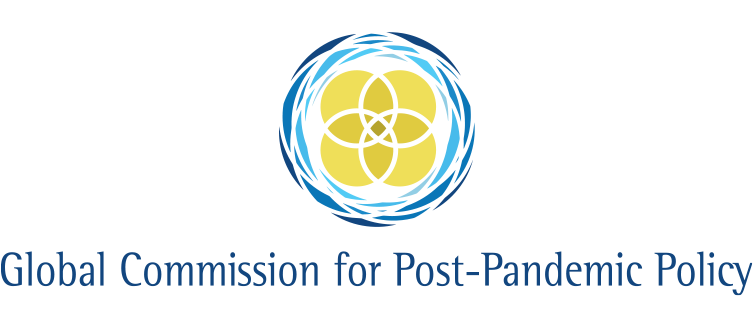The Pandemic, week to June 25th
Health
The number of confirmed COVID-19 cases recorded worldwide ticked up slightly this week, following an almost eight-week decline in global case numbers. The change in trend is being driven by a surge in infections in Southern Africa—especially in South Africa—and a revival of case numbers in the United Kingdom.
The British outbreak, reaching 16,000 a day on June 23rd, is being fuelled by the Delta variant of the coronavirus (B.1.617.2), with the United Kingdom now recording almost as many new daily COVID-19 cases as the entire European Union. The African outbreak is still being driven by the Beta variant (B.1.351), although the Delta variant is beginning to spread on the continent. In most other regions, new infections continue to decline. The exception is Latin America, where infection rates remain at a stubbornly high level, especially in Colombia, Argentina and Brazil.
The Delta variant is now present in at least 85 countries, reports the World Health Organisation (WHO), and is expected to account for 90% of new COVID-19 cases in Europe by late-August. To compound matters, a closely related variant discovered in April—dubbed “Delta Plus”—may be more infectious still, and is already present in 10 countries.
The Chinese government administered its one billionth coronavirus vaccine dose this week, with 500 million jabs into arms in the last month alone and China accounting for more than half of all doses administered worldwide this week. Nevertheless, questions continue about the efficacy of Chinese-made vaccines. The Seychelles, Chile, Mongolia and Bahrain are each battling serious coronavirus outbreaks, despite the fact that more than half the population in each of those countries is fully inoculated predominantly with vaccines produced by the Chinese vaccine manufacturers Sinopharm and Sinovac Biotech.
India, too, has accelerated its vaccinations as the supply of doses improved, achieving national daily rates of more than 5 million a day, double the rate at the start of June. Nevertheless, according to a study by market research firm CRISIL, the rate will have to rise further, to 8 million a day, if the government is to achieve its target of vaccinating all the adult population by the end of 2021.
The European Union, once a laggard in vaccinating its population against the coronavirus, is now catching up fast. This week, the 450 million population bloc overtook the United States in terms of cumulative vaccine doses administered, with more than 340 million jabs, meaning that 48.2% of EU residents have received at least one vaccine dose, compared with 53.2% in the US.
This is all good news for the re-opening of European travel. The EU Digital COVID Certificate (EUDCC) is set to go live on July 1st. The digital vaccine passport provides proof of whether a person has been vaccinated, received a negative test result or recently recovered from the virus, and will allow for greater ease of travel within the bloc. According to the European Commission, 18 member states (plus Iceland and Norway) have already issued at least one certificate, with all member states obliged to start issuing them by mid-August. As elsewhere, fears about the Delta variant threaten to slow this process.
A month ago, Cuba rolled out a mass vaccination campaign with its own unproven locally-developed vaccines. The gamble may be paying off. In late-stage clinical trials, the country’s three-shot Abdala vaccine appears to be 92.3% effective in preventing COVID-19, reports the Ministry of Public Health. That would be on a par with the best coronavirus vaccines. Earlier in the week, BioCubaFarma—the state-run biotech company—announced that another Cuban vaccine, “Sovereign 2”, is 62% effective after two of its three required shots, with results for the third dose expected in the next few weeks.
The vaccines made by Pfizer-BioNTech and Moderna may have caused heart problems in more than 1,200 Americans, researchers from the Centres for Disease Control and Prevention (CDC) report. The CDC emphasises that nevertheless the benefits of inoculation still far outweigh any risks, standing by its existing recommendation that all Americans 12 years and older be vaccinated.
Economy
In the United States, President Joe Biden struck a deal with Republican and Democratic Senators on an infrastructure bill worth US$1.2 trillion, half of which is expected to be new spending. The measure falls well short of the President’s original proposal, but would nevertheless represent a significant additional stimulus to the United States economy. The compromise may ultimately do little to limit the White House’s infrastructure ambitions. The president indicated that Democrats may yet force through a similarly large expenditure bill on “human infrastructure,” including childcare, education and clean energy through budget reconciliation later on.
The White House plans to extend the federal moratorium on evictions, scheduled to expire on June 30th, for one more month. The move is intended to give the government more time to distribute billions of dollars in pandemic housing aid. Other Democrats, local officials and tenant groups continue to warn that the moratorium’s expiration and the lapsing of similar state and local measures might kick off a new eviction crisis and a spike in homelessness at a sensitive moment in the country’s pandemic recovery.
In the United Kingdom, the Monetary Policy Committee (MPC) of the Bank of England voted unanimously to maintain interest rates at their 0.1% level, an historic low. With inflation rising in the country, observers were keen to see what the monetary authority’s response would be, especially after the United States Federal Reserve suggested it might raise its interest rates during 2022, sooner than expected. The Bank of England largely shrugged off concerns about inflation, however. “Financial market measures of inflation expectations suggest that the near-term strength in inflation is expected to be transitory,” said the Bank.
In China, investment in the country’s railways between January and May dropped to 203.6 billion yuan (US$31.5 billion)—an 8% decline from the same period last year, according to data released the National Railway Administration. The change is one of several signals that growth in the world’s second-largest economy is slowing after a temporary post-pandemic boom. The railway dip is one part of a more generalslowdown in fixed-asset investment, with consumer spending growth also beginning to weaken.
Politics
The United States announced that it will donate 3 million doses of the Johnson & Johnson coronavirus vaccine to Brazil. Brazil’s infections and daily death rate are surging again, with a cumulative death toll well above 500,000. The vaccines set to arrive in São Paulo are part of the Biden administration’s promise to dispatch 80 million vaccine doses to other countries by the end of the month, marking the beginnings of a more direct vaccine diplomacy effort by the United States. The Administration followed that up by committing to send an additional 3 million doses to Afghanistan.
To boost vaccine supply on the African continent, the WHO is in talks to create the first technology transfer hub for coronavirus vaccines in South Africa, announced WHO director-general Tedros Adhanom Ghebreysus. The President of South Africa Cyril Ramaphosa said at the press briefing that Africa will soon be able to “take responsibility for the health of our people,” saying that it is “just not equitable and not fair” that Africans continue to be denied access to coronavirus vaccines because of where they happened to be born.
In Australia, the Delta variant is fuelling a cluster of COVID-19 cases amongst state politicians in Sydney. New South Wales Agriculture Minister Adam Marshall tested positive for the variant after eating at a Sydney restaurant with three government colleagues on Monday. All four lawmakers had attended the state Parliament within the last few days. The Australian authorities suspect the cluster spread from a Sydney airport limousine driver, who tested positive last week. The cluster has now grown to 36 cases.
In Texas, 153 staff members at the Houston Methodist hospital were fired or resigned over their refusal to follow the hospital’s new mandatory coronavirus vaccination policy. The hospital had warned employees that they were expected to be vaccinated by June 7th or face a two-week suspension, followed by termination if they did not get vaccinated in their suspension period. Nearly 200 employees received a suspension, with most still refusing to get vaccinated.
Photo by Shooter name with link on Unsplash
GCPPP Newsletter
We now publish a weekly newsletter to inform friends and supporters of the Global Commission’s progress and to provide updates when new content is published. Please sign up here:


 Volodymyr Hryshchenko, Unsplash
Volodymyr Hryshchenko, Unsplash
 Adam Nieścioruk, Unsplash
Adam Nieścioruk, Unsplash
 visuals, Unsplash
visuals, Unsplash


